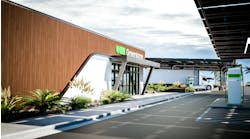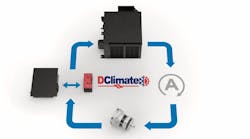Developments in the electric vehicle space are happening at a pace that is fast and furious. More fleet managers are announcing plans to pilot an EV or two (or more) in their fleets, and EV manufacturers are moving into serial production of vehicles.
While it will take some time to transition to EVs, more and more of them will start appearing on the highways. Like any commercial vehicle, EVs must be serviced. Because EVs have fewer moving parts, they likely will need less maintenance and repair. But less does not mean none.
That is why I was interested in a recent press release from Volvo Trucks North America announcing the opening of a Volvo Trucks Academy outside Chicago that will allow the company to expand training for technicians who will work on EVs.
Volvo is not the only one working on EV service. Recently, the National Institute for Automotive Service Excellence (ASE) hosted a workshop that focused on establishing safety standards for service professionals working on EVs. The purpose of the workshop was “to develop a roadmap for an assessment that will be used to determine whether an individual is qualified to safely work on, or around, high-voltage vehicle electrical systems and components,” according to ASE.
Some of the maintenance and repair on EVs will encompass components that technicians are already familiar with, such as wheels, tires, and brakes. However, technicians must be prepared to deal with high-voltage electrical drivetrains and other components. With these, there is a huge safety factor involved, and the industry must address this from a training standpoint.
Servicing EVs is an industry issue, and as such, we need to collaborate to develop maintenance and repair standards that not only keep these vehicles operating at peak performance levels but also ensure that the technicians working on them are well-versed in proper service procedures and can safely work on EVs.
Jane Clark focuses on managing the member services operation at NationaLease as vice president of member services. She works to strengthen member relationships, reduce member costs, and improve collaboration within the NationaLease supporting groups.
This article originally appeared on FleetOwner.com.



